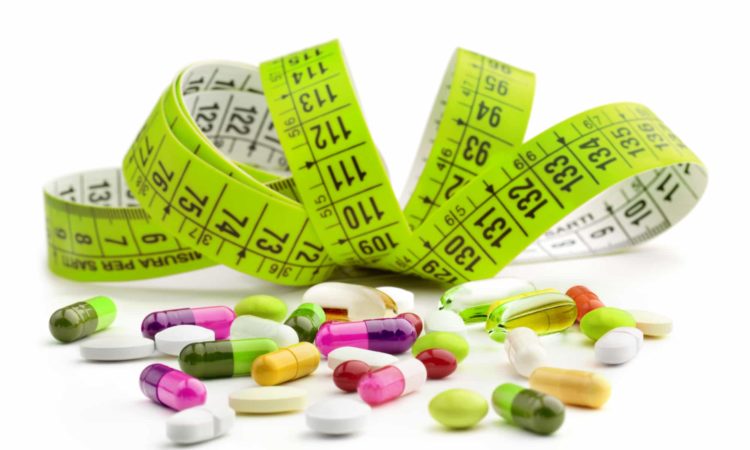
Especially if you don’t have your own laboratory with which to test what’s actually in those weight-loss supplements you’re taking.
Before you buy.
Look, it’s only human to want to take the easy way out of any problem. And modern medicine has encouraged that mindset. After the discovery of antibiotics, doctors believed they’d soon have a magic pill to solve every medical problem – and wanted everyone else to believe the power of pills.
Are Pills Really the Solution to Losing Weight?
Many desperately hope that’s true.
Losing weight is now a $60 billion industry in the United States – and it keeps on growing.
In the mid-90s, the former Vice-President of Marketing one of the biggest network marketing companies of the early ’80s told his distributors, in effect, weight loss was where the money is.
According to a national survey, one-third of American adults who’ve seriously tried to lose weight have purchased weight-loss supplements.
Also according to the survey, over half of those customers believed over-the-counter supplements, appetite suppressants, and herbal products had to be evaluated by the US government for safety, to be sold in the US.
Almost half of the respondents said they believed those same weight-loss supplements, appetite suppressants, and herbal products had to be evaluated by the US government for EFFICACY, to be sold in the US.
Over 60% said they believed the product labels had to contain warnings about possible side effects.
None of those three things are true.
You may as well believe in Santa Claus and the Easter Bunny.
Weight-loss products don’t have to work, don’t have to be safe – and their labels don’t have to warn you of dangerous side effects.
The FDA estimates dietary supplements (all kinds) cause 50,000 adverse events every year. The most common are liver and kidney damage.
Let the buyer beware – indeed.
The FDA will eventually react. In 2004, they finally banned sales of products containing ma huang/ephedra – but only after a reported 18,000 adverse events. Its use is associated with hypertension, seizures, stroke, heart attacks and sudden death.
What are Supplement Customers Getting for Their Money?
In MANY cases, it’s NOT what they believe – or what the company claims on the bottle.
Supplement manufacturers want to say their products meet the Food and Drug Administration’s “Good Manufacturing Practice” (GMP) guidelines. These are simply minimal standards such as basic sanitation.
However, in one period, FDA investigators cited 7 out of 10 supplement manufacturers for violating practices to ensure that what’s actually in the pill or tablet matches what the label claims – and is safe.
In one study of herbal products, 59% of the supplements contained the DNA of plant species not listed on the bottle’s label.
In 30 out of the 44 products tested, there was product substitution – that is, the tablet contained another herb than what was advertised.
48% did contain the advertised herb, but one-third of those products also contained contaminants or fillers not listed on the bottle.
Only two out of twelve companies sold products without product substitution, fillers or contaminants.
The New York State Attorney General Commissioned a Study
They bought herbal supplements at Walmart, Target, Walgreen, and GNC – where most people might buy them.
Four out of five of the products tested didn’t contain ANY of the ingredients promised on the label.
Most contained only such ingredients as powdered rice, asparagus, and “house plants.”
Some contained powdered legumes, which could endanger people with allergies to peanuts.
Yet, that’s the good news.
Some Weight Loss Supplements are Adulterated With Drugs
One study examined 160 weight loss supplements – all of them advertised as “all natural.”
56% of them contained over-the-counter and prescription medications.
These included:
* The antidepressant Prozac
* Viagra (for erectile dysfunction)
* Meridia (Sibutramine – which actually is an anti-obesity drug, but no longer sold in the US)
* Diuretics – water pills, so you “lose weight” by eliminating lots of water from your body
* lorcaserin – another weight loss drug now discontinued in the US, for causing cancer
* Caffeine
* Caffeine + temazepam
Caffeine is a stimulant, of course. Temazepam is a sleeping pill that can slow your breathing down to *nothing* – causing death. Plus, it can cause paranoia and suicidal ideation. It interacts badly with some other substances, including alcohol, but how can you prevent that if you don’t realize you’ve swallowed temazepam? This is clearly not a drug to take without a doctor’s supervision – but it’s in half the weight-loss supplements containing caffeine.
Can’t the FDA Stop This?
The FDA can order recalls of such products, but the companies just continue manufacturing them. A study done six months after some recalls found 66.7% of the recalled products back on the shelves. 17 out of 27 such recalled products still contained the same adulterant the FDA identified. Six of the 27 contained banned ingredients not originally banned by the FDA.
The FDA does fine the offending companies, but the fines are small potatoes compared to the profits. The fines are just another cost of doing business – passed on to the customer.
Therefore, when it comes to herbal supplements in general and weight-loss supplements in particular:
Let the buyer beware.
Beware.
https://nutritionfacts.org/video/are-weight-loss-supplements-safe/
Pillitteri JL, Shiffman S, Rohay JM, Harkins AM, Burton SL, Wadden TA. Use of dietary supplements for weight loss in the United States: results of a national survey. Obesity (Silver Spring). 2008;16(4):790-6.
Austin SB, Yu K, Liu SH, Dong F, Tefft N. Household expenditures on dietary supplements sold for weight loss, muscle building, and sexual function: Disproportionate burden by gender and income. Prev Med Rep. 2017;6:236-241.
Marcus DM. Dietary supplements: What’s in a name? What’s in the bottle?. Drug Test Anal. 2016;8(3-4):410-2.
https://www.lifehack.org/520861/the-cold-truth-about-the-diet-industry-america
https://www.nejm.org/doi/full/10.1056/nejmc1502505
Long J. FDA GMP inspectors cite 70% of dietary supplement firms. Natural Products INSIDER. Published May 20, 2013.
O�Connor A. New York attorney general targets supplements at major retailers. The New York Times. Published February 3, 2015.
Newmaster SG, Grguric M, Shanmughanandhan D, Ramalingam S, Ragupathy S. DNA barcoding detects contamination and substitution in North American herbal products. BMC Med. 2013;11:222.
Hachem R, Assemat G, Martins N, et al. Proton NMR for detection, identification and quantification of adulterants in 160 herbal food supplements marketed for weight loss. J Pharm Biomed Anal. 2016;124:34-47.
Moreira AP, Motta MJ, Dal molin TR, Viana C, De carvalho LM. Determination of diuretics and laxatives as adulterants in herbal formulations for weight loss. Food Addit Contam Part A Chem Anal Control Expo Risk Assess. 2013;30(7):1230-7.
https://medlineplus.gov/druginfo/meds/a684003.html







